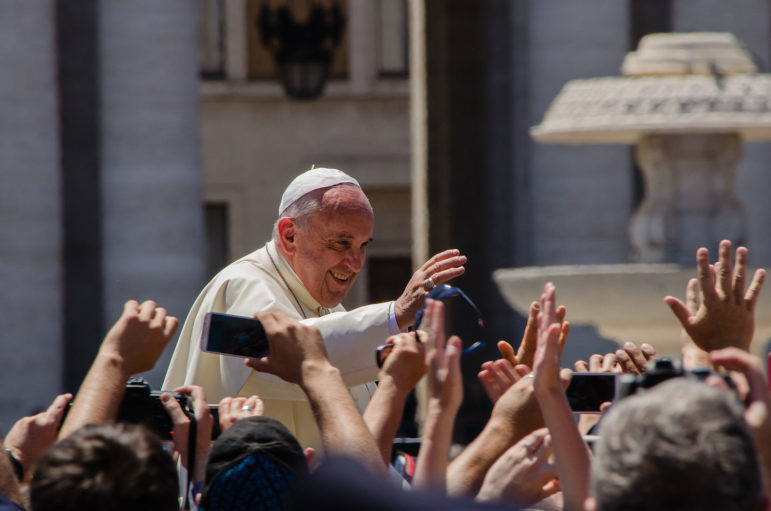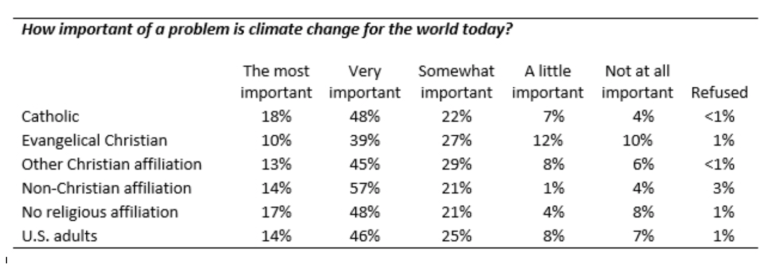
July 25, 2016; Independent Catholic News
On World Youth Day, celebrated this year in Krakow, Poland, an open letter signed by over 120 youth groups was delivered to Pope Francis, asking that he urge Catholic organizations of all kinds to divest from fossil fuels while continuing his own efforts to divest the Vatican.
In Laudato Si’, as readers may remember, Pope Francis powerfully acknowledged: “We know that technology based on the use of highly polluting fossil fuels needs to be progressively replaced without delay” and this acknowledgement has seemed to be taken to heart by American Catholics, as has recently been recorded by the Center for Applied Research in the Apostolate.

Sign up for our free newsletters
Subscribe to NPQ's newsletters to have our top stories delivered directly to your inbox.
By signing up, you agree to our privacy policy and terms of use, and to receive messages from NPQ and our partners.
Since the pope’s encyclical, Thea Ormerod, the president of the Australian Religious Response to Climate Change, has found her role in encouraging Catholic religious organizations to divest publicly has become much easier. “[The pope] saying our need to move away from fossil fuels is urgent—that’s quite powerful. Sometimes parishioners have been told by the parish priest, ‘No, that’s too political—it’s not aligned with Catholic values.’ No priest can say that now.”
Four orders of Australian Catholics declared their intentions to divest back in June. The four orders are: Marist Sisters Australia; Presentation Congregation Queensland; Presentation Sisters Wagga Wagga; and the Passionists—Holy Spirit Province Australia, NZ, PNG and Vietnam. Father Thomas McDonough from the Passionists said his congregation had long understood their need to be “ecologically responsible.”
Pope Francis, in his Laudato Si’, crystallised for us the level of responsibility we need to take as a congregation—the urgency for action ever more apparent. So we trustees of the Passionists took the decision to begin diverting our investments from fossil fuel extractive industries and into renewable energy. We believe the Gospel asks no less of us.
It’s true that some very large Catholic organizations around the globe have millions of dollars invested in fossil fuel companies. However, institutions like Georgetown University, the University of Dayton, Trócaire, and the Franciscan Sisters of Mary have already committed to divest, joining approximately 530 institutions with a collective $3.4 trillion in funds under management. They include the World Council of Churches, the Norwegian Sovereign Wealth Fund, the Rockefeller Brothers Fund, and Stanford and Oxford Universities.—Ruth McCambridge













